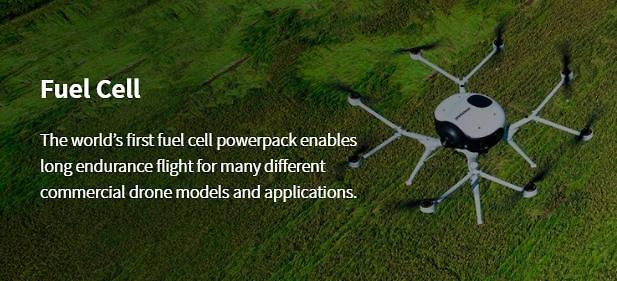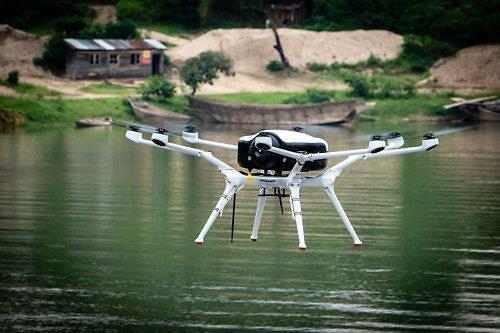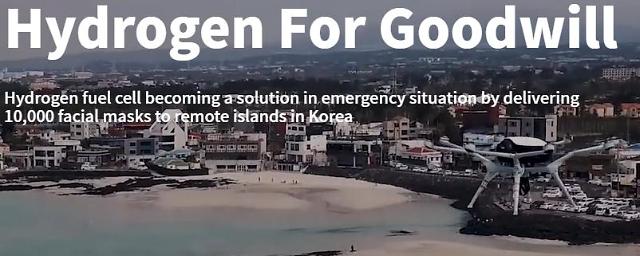
[Courtesy of Doosan Mobility Innovation]
SEOUL -- Doosan Mobility Innovation, a drone solution provider in South Korea, tied up with a unit of South Korea's steel group POSCO to develop an ultra-thin metal separator for fuel cell stacks. They would seek to find a business opportunity for their entry into cargo drone and urban air mobility industries.
POSCO SPS, a subsidiary of POSCO International, signed a memorandum of understanding with Doosan Mobility Innovation (DMI) on March 25 to develop a 20μm metal separator. μm is the symbol of a micrometer that can make extraordinarily precise measurements, equal to 0.001 mm.
"The lightweight of metal separators is a key technology that increases the fuel cell efficiency of hydrogen drones," said POSCO SPS CEO Kim Hak-yong. "We will strive to develop technologies that can be applied to various mobility fields through synergy between our ultra-thin materials and molding technologies and DMI's drone design technologies."
The two companies would develop technologies that can be applied to urban air mobility (UAM), an ecosystem covering personal air vehicles and infrastructure. POSCO SPS has produced Poss470FC, a stainless steel bipolar separator that contains chromium, defying rust and featuring high conductivity. The separator is a key component of fuel cell stacks.
Batteries are designed in a structure where multiple units of cells are connected in series within a single cell-stack. The separator provides a channel for oxygen and air, connects electricity created at each cell and provides mechanical support.
The range of multi-copter drones is limited due to their relatively short battery life. Hydrogen fuel cell drones with an extended flight time could become a game-changer in the global market for unmanned flying systems. DMI has been involved in a government project to supply fuel cello drones for military use.
Copyright ⓒ Aju Press All rights reserved.

![[CES 2020] Doosan Mobility partners with Microsoft to develop fuel cell pack drone solutions](https://image.ajunews.com/content/image/2020/01/10/20200110164929197730.jpg)


View more comments